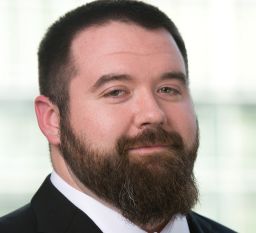Editor’s Note: Adam Bates is a policy analyst with the Cato Institute’s Project on Criminal Justice. The views expressed are his own.
Story highlights
Adam Bates: Noncommercial background check requirement would do little to deter crime
Lawmakers should hit the violent criminal underworld where it hurts, he says
While the gun control policies pushed in the name of “common sense” move increasingly into the realm of wishful thinking, the most common sense approach of all is being entirely ignored: ending the drug war.
Tragic mass shootings get all the media attention and tend to garner the most impassioned calls for tighter gun control laws. But gun violence related to the drug war kills many more people. If gun control advocates really want to prevent more homicides, it’s not background checks that will get us there. It’s decriminalization of drugs.
The exact magnitude of violent crime caused by the criminalization of drugs remains unknown, but we can get a reasonable starting point by looking at the data for gang-related crime. Illicit drug proceeds are the lifeblood of gang behavior, and competition over market “turf” is the primary driver of gang violence. The government estimates that more than 2,000 homicides a year are gang-related. That’s two orders of magnitude higher than mass shootings, which on average take around 30 to 40 people’s lives a year nationwide.

America has been down this violent road before. During alcohol Prohibition in the 1920s and ’30s, violent crime, murder and killings of police officers skyrocketed as criminal cartels seized urban streets. After Prohibition ended, the murder rate declined for 11 consecutive years.
Having learned nothing from the failed experiment in Prohibition, policymakers turned their attention to banning other illegal drugs, and the streets were once again lost to criminal distribution networks.
A study commissioned by the White House in 2012 estimated that illegal American sales of marijuana, cocaine, heroin and methamphetamine alone amount to roughly $100 billion annually. That’s $100 billion changing hands without access to any of the official, legal mechanisms for protecting commerce or peacefully resolving disputes.
Under such circumstances, violence is inevitable. When distributors can’t rely on the law to settle disputes and deliver product, they take matters into their own hands. In the 1920s, competitors relied on tommy guns and Molotov cocktails. Today, handguns are the weapon of choice, but the violence has the same purpose.
In response to tragic, yet rare, mass shootings, gun control advocates recommend some impractical solutions. Take universal background checks. The concept has two main flaws: It’s overly burdensome to the point of unenforceability, and background checks are not an effective way to keep guns out of the hands of dangerous people.
Under current federal law, every commercial seller of firearms must be licensed by the government and conduct background checks on buyers. People who do not sell firearms for a living, but still sell the odd gun or two, are not required to conduct checks, but are still bound by federal law making it a felony to transfer a firearm to someone that the transferer knows, or has reason to know, is ineligible to own it. Thus, every private transfer of a firearm is currently regulated by federal law.
Universal checks would impose intrusive burdens on even the most routine transfers, such as between family members or between people hours away from any licensed dealer. This could mean widespread noncompliance, resulting in a whole new wave of felony charges in a nation already embarrassed by the size of its nonviolent prison population. Or, alternatively, the law would carve out those transfers to avoid that inconvenience, in which case the primary means of criminal gun acquisition would still exist outside the background check requirement.
In addition to being unenforceable, imposing a noncommercial background check requirement would do little to deter crime. The federal government acknowledged that, absent a universal firearm registry, a universal background check system couldn’t function.
Furthermore, there is little evidence that increased background checks would deny murderous criminals access to weapons. Oregon campus shooter Chris Harper-Mercer passed a background check. So did Roanoke, Virginia, TV news shooter Vester Flanagan and Colorado theater shooter James Holmes. There are more than 20 million checks a year, and never more than a handful of prosecutions.
And, thanks in large part to the drug war, the black market for firearms is so massive that even the minuscule few would-be murderers who can’t pass a check can easily find a weapon. According to the Bureau of Alcohol, Tobacco, Firearms and Explosives, the average time between the purchase of a crime gun and its appearance at a crime scene is 11 years. Virtually every gun control measure is designed to interfere at the point of initial purchase and therefore ignores how criminals get their guns.
“Common sense” gun laws would do nothing to reduce violent crime. Ending the drug war, on the other hand, would take a $100 billion industry that currently depends on criminal violence and bring it into the peaceful marketplace.
Policymakers concerned about the violent crime in American society should stop pining for a world without guns and start looking at policies that we know will lead to substantial reductions in murders and many other forms of violent crime.
Give up on unworkable, illogical gun laws and hit the violent criminal underworld where it hurts: End the black market for drugs.
Join us on Facebook.com/CNNOpinion.
Read CNNOpinion’s Flipboard magazine.
